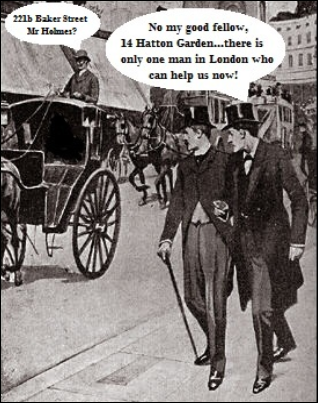



Video Gallery





Should I answer questions at the Police Station?




What are my costs going to be?


How should
I plead?


How we select a barrister for you




Do I need a lawyer with me at the Police Station?







How can you defend a guilty person?


Leading Criminal Bail Solicitor

Top Criminal
Appeal Solicitor



What kind of Service can I expect?

Solicitor for a Second 2nd opinion








Outside UK: +44 207 831 9944

top criminal defence solicitor home
top criminal defence lawyer in russian | top criminal defence lawyer in chinese
top london criminal solicitor | top london criminal lawyer
criminal appeals solicitor | bail solicitor | 2nd opinion solicitor
extradition lawyer
testimonials | articles | short stories
contact | henry milner google +
Henry Milner & Company (Established 1978)
14 David Mews, London, W1U 6EQ
Authorised & Regulated by the Solicitors Regulation Authority (No 52316)

In UK: 027 831 9944


Email



020 7831 9944


Edition 1gr SUN 06 SEP 1998, Page News Review 9
The Mr Big in criminal briefs; Interview; Henry Milner
Stuart Wavell meets the solicitor the seriously troubled seek out in a crisis.
You've been nicked, the filth are crawling all over your Axminster carpets and you could be looking at more porridge than Oliver Twist ever dreamt of. Who do you call? You're not boracic lint -
Journalists have been ringing him non-
Milner's breakthrough into the big time of high-
When the £26m Brink's-
Were there any cases he would not handle? Milner frowned. "It's a very difficult question, because I do a lot of cases the public finds distasteful, like drugs. But I have never handled cases involving sexual offences on elderly people or young children."
Okay, say you are facing a long stretch and you go to see Henry at his first-
What is Milner feeling? "You've got to look confident even if you don't feel it. If you show a weakness or fear they will jump on it. Defendants are as shrewd as anything. They know whether you are on the ball." One question preoccupies their thoughts. " 'What are my chances?' they ask. It's best to be straight with a client. You start with 'hopeless', 'very, very poor', 'relatively poor', 'under 50%', 'evens' or 'quite good'. If you put it above 'good', you're in trouble if they are found guilty."
Milner leans back and roars with laughter, then adds: "You can't guarantee anyone winning a case any more than love comes with a guarantee." With 25-
"We had a case of an Iranian who was charged with possessing 100 kilos of heroin. In my view, the case was absolutely hopeless and had he received 18 years, he would have done well. We begged him to plead guilty but he wouldn't hear of it. When we got to court, it just fell our way."
Popular fiction and films have nurtured the idea that criminals can get too cosy with their lawyers. How pally does Milner get with "chummy"? It is a criticism that he has been confronted with in the past. "I don't have a close relationship with my clients," he replies. "I don't go out at night with clients. I don't go to pubs with clients. If I'm preparing a case I might go and have a snack with them at lunchtime, and that's it."
There was more tension with police in the days when solicitors could be excluded from interviews and defendants could be "verballed up" with false confessions. Milner recalls an uneducated young client, arrested for conspiracy to rob, who had supposedly stated: "It looks bad, but so did Dunkirk, and we managed to wriggle out of that."
Suspecting the boy knew nothing of the Dunkirk evacuation -
So what makes Milner run? The thrill of winning against the odds, reflected in a passion for bridge, he says. It's fun . He's his own boss, with no frowning partners if he takes the afternoon off to indulge his enjoyment of traditional American music or Tottenham Hotspur.
Milner's personal service means keeping hold of the reins during a case, helping to decide which witnesses to call, influencing a counsel's closing speech and occasionally putting his foot down. He attributes his success in large measure to picking top barristers with a knack of winning. Too impatient with long-

An amusing thank-
from a grateful client.
Sherlock Holmes knows a top criminal solicitor when he sees one, so makes his way to the Henry Milner & Company Solicitors offices!

Back to Top Criminal Defence Solicitor -
Back to Top London Criminal Solicitor -
| All Specialities |
| Criminal Appeals |
| Our Bail Service |
| Getting a Second 2nd Opinion |
| Extradition |